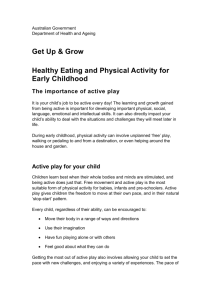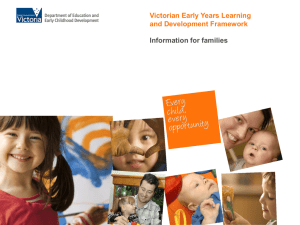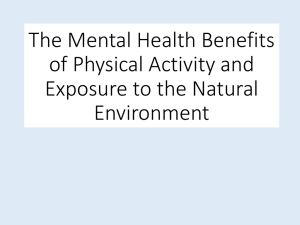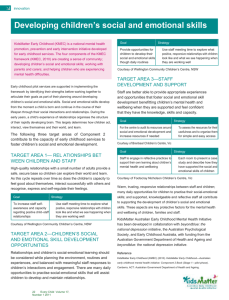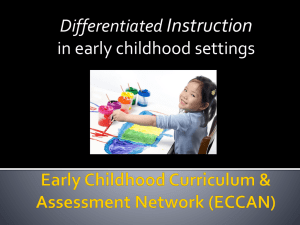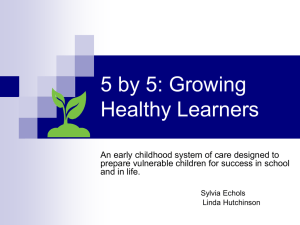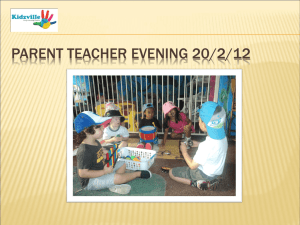Document
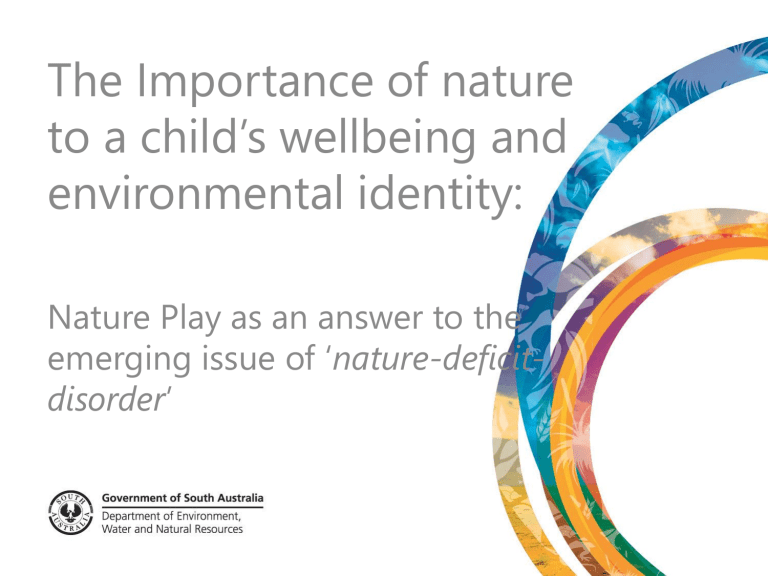
The Importance of nature to a child’s wellbeing and environmental identity:
Nature Play as an answer to the emerging issue of ‘nature-deficit-
disorder’
What is Nature Play?
Nature play includes any unstructured play outdoors, such as riding a bike, climbing a tree, bush walking, swimming at the beach and catching tadpoles.
The Nature Play Movement
• The Nature Play movement was established to increase the time children spend in unstructured play outdoors and in nature.
• It is founded on the understanding that unstructured play, outdoors in nature is fundamental to a full and healthy childhood and fosters a nature connection and environmental identity.
Nature-Deficit-Disorder
• Nature Play was inspired by the ideas of American social commentator Richard Louv who argues that increasing urbanisation, less access to natural areas and the lure of screen-time has resulted in a childhood that is increasingly spent indoors, contributing to a wide range of health and behavioural problems.
• Louv coined the term ‘nature-deficit-disorder’ to describe this phenomenon of childhood increasingly being spent indoors.
“…the first environmental crisis is the potential collapse of the natural world
…… the second environmental crisis is the removal of children from the natural
world”. George Monbiot
“What they do not know, they will n ot protect, and what they do not protec
t, they will lose” . Charles Jordan
Removal of children from nature
1. Urbanisation
2. Modern lifestyles
3. Screen time
4. Parental fears
Benefits of nature to a child’s wellbeing
1. Cognitive
2. Physical
3. Mental Health
4. Environmental Identity
How?
• Set up Nature Play SA based on Nature Play
WA model.
• Embed Nature Play concepts in Government
Strategies, Priorities, Plans, Programs etc.
• Cross-government and cross-sector approach crucial.
Nature Play WA
• Nature Play WA is a collaborative organisation working with partner groups to encourage the WA community to value nature play and support families to prioritise it in their children’s lives.
• It does this through a variety of programs such as the highly successful ‘Nature Play WA PASSPORT to an
amazing childhood’ and ‘51 Things To Do Before
You’re 12’.

